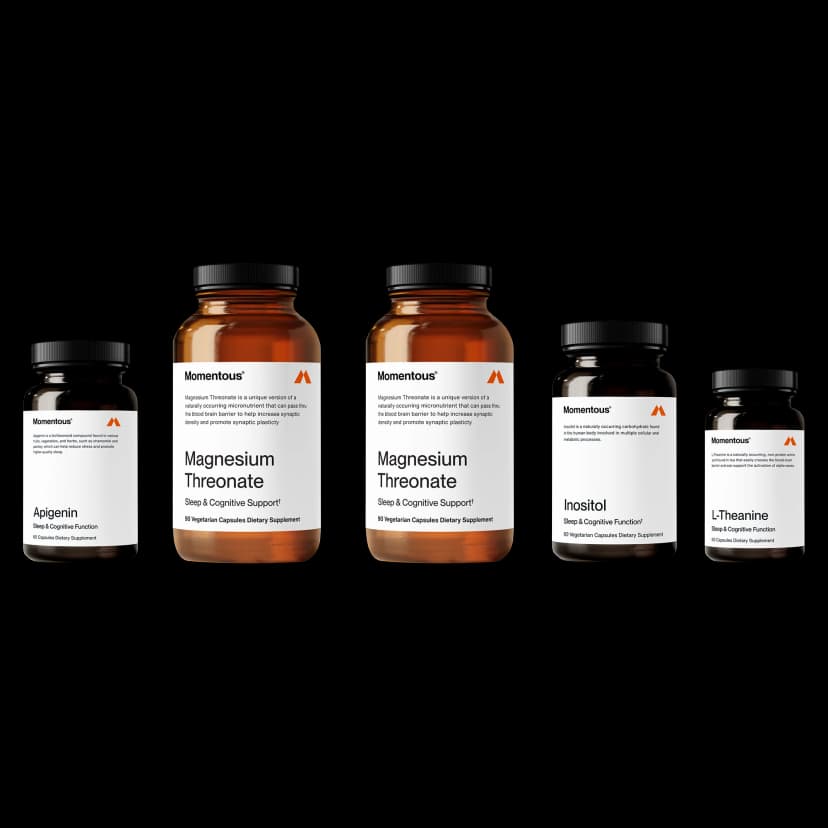Creatine is a natural substance found in the body and in foods like meat and fish. It's a favorite supplement for athletes and fitness fans because it can improve performance, build muscle, and increase strength. This guide will cover everything about creatine, from how it works to the best ways to use it and possible side effects.
Key Takeaways
- Creatine helps produce energy quickly, which is important for high-intensity workouts.
- Different types of creatine supplements are available, with creatine monohydrate being the most popular.
- Using creatine can lead to increased muscle mass, better strength, and faster recovery times.
- It's important to follow the recommended dosage and consider a loading phase for best results.
- While generally safe, creatine can have side effects, and it's important to understand the myths and facts around its use.
Understanding Creatine: The Basics
What is Creatine?
Creatine is a natural substance found in our muscles. It helps produce energy during high-intensity activities like sprinting and weightlifting. It's essential for quick energy bursts. Our bodies make creatine from amino acids, which are the building blocks of protein.
Natural Sources of Creatine
You can find creatine in foods like meat and fish. Here’s a quick look at some sources:
| Food | Creatine Content (g per kg) |
|---|---|
| Beef | 4.5 |
| Pork | 5.0 |
| Salmon | 4.5 |
| Tuna | 4.0 |
How the Body Produces Creatine
Our bodies make creatine in the liver, kidneys, and pancreas. They use amino acids like glycine, arginine, and methionine to create it. This process ensures we have enough creatine for our muscles to function well, especially during intense activities.
Creatine is vital for energy production in muscle cells, making it a key player in fitness and exercise.
How Creatine Works in the Body
Creatine and Energy Production
Creatine plays a key role in the body's energy system, especially during high-intensity activities. It helps regenerate ATP (adenosine triphosphate), the primary energy currency in cells. This allows muscles to perform at higher levels for longer periods. When ATP is used up, creatine steps in to quickly replenish it, making it essential for short bursts of energy.
Creatine's Role in Muscle Contraction
Muscle contractions rely heavily on ATP. During intense exercise, ATP levels drop rapidly. Creatine helps by providing a quick source of energy to sustain muscle contractions. This means you can lift heavier weights or sprint faster, enhancing your overall performance.
Creatine and Brain Function
Interestingly, creatine isn't just for muscles. It also supports brain function. The brain uses a lot of energy, and creatine helps ensure there's enough ATP to keep cognitive functions running smoothly. This can lead to improved mental clarity and focus, especially during demanding tasks.
Creatine is not just a supplement for bodybuilders; it has wide-ranging benefits that extend to brain health and overall energy levels.
Types of Creatine Supplements
Creatine Monohydrate
Creatine monohydrate is the most common and affordable type of creatine supplement. It's widely studied and proven to be effective in boosting performance, muscle growth, and recovery. This form is usually available as a powder that you mix with water or juice.
Creatine Ethyl Ester
Creatine ethyl ester is another popular form of creatine. Some people believe it has better absorption than creatine monohydrate, but studies have shown mixed results. It is also available in powder form and is often marketed as causing less bloating.
Buffered Creatine
Buffered creatine is designed to be less acidic than other forms, which may reduce stomach discomfort for some users. This type of creatine is also available in powder form and is often recommended for those who experience digestive issues with other types of creatine.
Benefits of Creatine for Fitness
Increased Muscle Mass
One of the most well-known benefits of creatine is its ability to increase muscle mass. Creatine helps muscles retain water, making them look fuller and larger. Over time, this can lead to actual muscle growth as you can train harder and more frequently.
Enhanced Strength and Power
Creatine is popular among athletes because it boosts strength and power. By increasing the availability of ATP, the primary energy source for muscle contractions, creatine allows for more intense and longer workouts. This is especially beneficial for high-intensity, short-duration activities like weightlifting and sprinting.
Improved Recovery Time
Creatine also aids in muscle recovery. It reduces muscle cell damage and inflammation after strenuous exercise, which speeds up recovery times. This means you can train more often and with greater intensity, leading to better overall performance.
Creatine is not just for bodybuilders; it's a versatile supplement that can benefit anyone looking to improve their fitness levels.
Optimal Usage and Dosage
Loading Phase vs. Maintenance Phase
When starting creatine, many people use a loading phase to quickly saturate their muscles with creatine. This involves taking a higher dose for a short period, usually 20 grams per day for 5-7 days. After this, you switch to a maintenance phase, where you take a lower dose, typically 3-5 grams per day.
Recommended Daily Dosage
For most people, a daily dose of 3-5 grams is sufficient to maintain elevated creatine levels in the muscles. Larger individuals or those with higher muscle mass may need slightly higher doses. It's important to adjust based on your body's response and consult a healthcare professional if unsure.
Timing Your Creatine Intake
The timing of creatine intake can impact its effectiveness. Some prefer taking it before workouts to boost performance, while others take it post-workout to aid recovery. Consistency is key, so choose a time that fits your routine and stick with it.
Adjust your dosage based on your progress and consult with a healthcare professional for personalized advice.
Potential Side Effects and Safety
Common Side Effects
While creatine supplements are generally safe and well-tolerated, there are potential side effects to be aware of. Some of the most common side effects include:
- Upset stomach
- Cramping
- Dehydration
These side effects often occur due to improper dosage, inadequate hydration, or individual differences in metabolism.
Long-term Safety
High doses of creatine over long periods may strain the kidneys and liver. However, studies generally show that creatine is safe for healthy individuals when taken at recommended doses. It's important to monitor your intake and stick to the guidelines.
Myths and Misconceptions
There are many myths surrounding creatine use. One common myth is that creatine causes kidney damage. Scientific evidence does not support this claim for healthy individuals. Another misconception is that creatine leads to excessive water retention, but this is usually temporary and not a concern for most athletes.
Always consult a healthcare professional before starting any new supplement regimen, especially if you have pre-existing health conditions.
Creatine Myths and Facts
There are many myths and misconceptions about creatine that can lead to confusion. One common myth is that creatine causes water retention. In reality, creatine helps muscles retain water, which is beneficial for muscle growth and function. Another myth is that creatine is only for bodybuilders. However, creatine can benefit anyone looking to improve their fitness, from athletes to older adults.
Creatine is one of the most researched supplements available. Hundreds of studies have shown that it is both safe and effective for various fitness goals, including increasing muscle mass, enhancing strength, and improving recovery. Unlike many other supplements, creatine has a strong scientific backing.
A common concern is that creatine can harm the kidneys. However, numerous studies have shown that creatine supplementation does not negatively affect kidney function in healthy individuals. It's important to follow recommended dosages to ensure safety.
Creatine is not just for bodybuilders; it can benefit anyone looking to improve their fitness, from athletes to older adults.
Conclusion
Creatine is a powerful tool in the fitness world, offering numerous benefits like increased strength, better muscle growth, and improved recovery. By understanding how creatine works and the best ways to use it, you can make informed decisions that help you reach your fitness goals. Remember, while creatine is generally safe, it's important to be aware of potential side effects and consult a healthcare professional if you have any concerns. With the right approach, creatine can be a valuable addition to your fitness routine, helping you achieve new heights in your athletic performance.
Frequently Asked Questions
What is creatine and where can you find it naturally?
Creatine is a substance found in our bodies and in foods like meat and fish. It's also a popular supplement for athletes.
How does creatine help with energy?
Creatine helps produce energy by making more ATP, which is the main energy source for cells, especially during short bursts of activity like lifting weights.
Are there different types of creatine supplements?
Yes, there are several types including creatine monohydrate, creatine ethyl ester, and buffered creatine. Each type has its own benefits.
What are the benefits of taking creatine for fitness?
Creatine can help increase muscle mass, enhance strength and power, and improve recovery time after workouts.
How should I take creatine for the best results?
You can start with a loading phase for the first week, then move to a maintenance phase. The usual daily dose is 3-5 grams, and it's best taken after workouts.
Is creatine safe and are there any side effects?
Creatine is generally safe for most people, but some might experience minor side effects like stomach cramps or water retention. Always follow the recommended dosage.
























